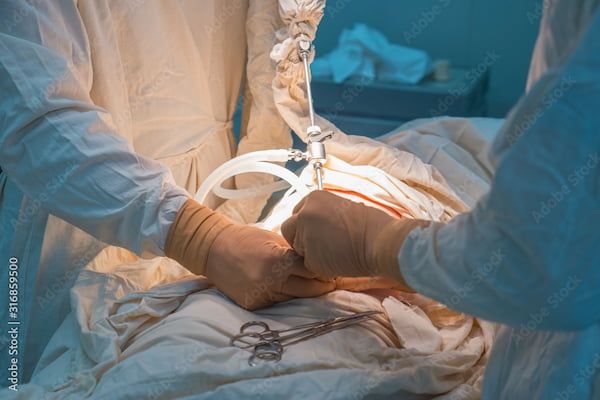Bypass Surgery Patient Recovery
Recovering from bypass surgery? Learn what to expect during each stage, how to manage symptoms, and tips for a heart-healthy recovery at home and beyond.

Written by
Last updated on 10th Jul, 2025

Introduction
Undergoing bypass surgery is a significant step toward better heart health, but the journey doesn’t end in the operating room. Recovery is just as crucial as the surgery itself. If you or a loved one has recently had bypass surgery, this guide will help you understand what to expect and how to support a smooth and healthy recovery.
What is Bypass Surgery?
Bypass surgery, or coronary artery bypass grafting (CABG), is a procedure that improves blood flow to the heart by creating new pathways (grafts) around blocked or narrowed arteries. This helps reduce chest pain (angina) and lowers the risk of heart attacks.
Consult Top Specialists for Personalised Heart Health Advice
What to Expect After Surgery?
Recovery after bypass surgery happens in stages:
1. Hospital Stay (3-7 Days)
You’ll spend the first few days in the ICU (Intensive Care Unit) for close monitoring.
Tubes—for drainage, IV fluids, and monitoring—will be removed gradually.
You’ll be encouraged to sit up, walk short distances, and do breathing exercises to prevent complications.
2. Early Recovery at Home (First 4-6 Weeks)
Rest is key, but light movement, like short walks, helps healing.
Pain and discomfort, especially around the chest incision, are normal but manageable with prescribed medications.
Follow-up visits with your doctor ensure proper healing.
3. Long-Term Recovery (6 Weeks to 6 Months)
Gradually increase activity under medical guidance.
Cardiac rehabilitation, supervised exercise and education, helps strengthen the heart.
Full recovery may take 3-6 months, but many patients return to normal activities sooner.
Common Challenges & How to Manage Them
Here are the most common issues patients face after bypass surgery and tips to manage them effectively.
1. Fatigue & Weakness
Your body is healing from major surgery.
Rest when tired, but stay active in small doses, like walking.
2. Incision Care
Sternum (breastbone) healing takes time—avoid lifting heavy objects over 2-3 kgs for 6-8 weeks.
Keep incisions clean and dry to prevent infection.
3. Emotional Changes
Feeling anxious or low is common.
Talk to loved ones, join support groups, or seek counselling if needed.
4. Swelling (Legs or Arms)
Common, if veins were used for grafts.
Elevate legs, wear compression stockings, and move gently.
Lifestyle Changes for a Stronger Heart
Long-term heart health depends on the changes you make after surgery.
1. Heart-Healthy Diet
Eat more: Fruits, vegetables, whole grains, lean proteins like fish and chicken, and healthy fats from olive oil and nuts.
Avoid: Excess salt, sugar, fried foods, and processed meats.
2. Regular Exercise
Start with short walks, then increase time gradually.
Cardiac rehab programs provide safe, structured workouts.
3. Quit Smoking & Limit Alcohol
Smoking damages blood vessels—quitting is a must.
Alcohol in moderation, if approved by your doctor.
4. Manage Stress
Try meditation, deep breathing, or gentle yoga.
5. Take Medications as Prescribed
Blood thinners, cholesterol meds, and blood pressure drugs help prevent future blockages.
When to Call the Doctor?
Seek immediate medical help if you experience:
Chest pain not relieved by rest or medication.
High fever or signs of infection like redness or pus at incision sites.
Severe shortness of breath or dizziness.
Irregular heartbeat or excessive swelling.
Final Thoughts
Recovery after bypass surgery takes time, patience, and commitment to a heart-healthy lifestyle. Every small step—whether it’s a short walk or choosing a nutritious meal—helps your heart heal stronger.
If you have concerns or need guidance, Apollo24|7 offers expert cardiac care and rehabilitation support. You can book a consultation or schedule follow-up tests easily through our platform.
Consult Top Cardiologists
Consult Top Specialists for Personalised Heart Health Advice

Dr. Amit. A. Bharadiya
Cardiologist
12 Years • MBBS, MD General Medicine, DNB Cardiology, FSCAI
Maharashtra
Surabhi Hospital, Maharashtra, Maharashtra

Dr. S B Bhattacharyya
Cardiologist
22 Years • MBBS, MD(General Medicine),DM (Cardiology)
Kolkata
Gariaheart Clinic, Kolkata
Dr. Jayarajah Mariappan
Cardiologist
45 Years • MBBS, MD(GEN MEDICINE), DM(CARDIOLOGY)
Chennai
Sooriya Hospital, Chennai

Dr. Sumanta Chatterjee
Cardiologist
12 Years • MBBS,MD General Medicine,DM Cardiology
Kolkata
HealthYou Speciality Clinic & Diagnostics., Kolkata
(25+ Patients)

Dr. Mangesh Danej
Cardiologist
8 Years • MBBS, MD (General Medicine), DNB (Cardiology)
Pune
Dr Danej clinic, Pune
(375+ Patients)
Consult Top Cardiologists

Dr. Amit. A. Bharadiya
Cardiologist
12 Years • MBBS, MD General Medicine, DNB Cardiology, FSCAI
Maharashtra
Surabhi Hospital, Maharashtra, Maharashtra

Dr. S B Bhattacharyya
Cardiologist
22 Years • MBBS, MD(General Medicine),DM (Cardiology)
Kolkata
Gariaheart Clinic, Kolkata
Dr. Jayarajah Mariappan
Cardiologist
45 Years • MBBS, MD(GEN MEDICINE), DM(CARDIOLOGY)
Chennai
Sooriya Hospital, Chennai

Dr. Sumanta Chatterjee
Cardiologist
12 Years • MBBS,MD General Medicine,DM Cardiology
Kolkata
HealthYou Speciality Clinic & Diagnostics., Kolkata
(25+ Patients)

Dr. Mangesh Danej
Cardiologist
8 Years • MBBS, MD (General Medicine), DNB (Cardiology)
Pune
Dr Danej clinic, Pune
(375+ Patients)




